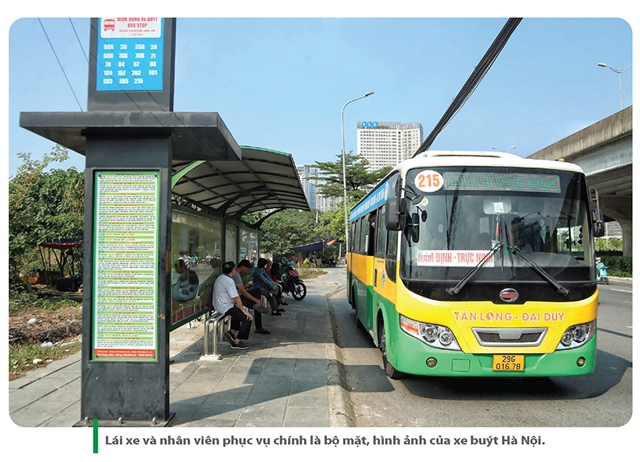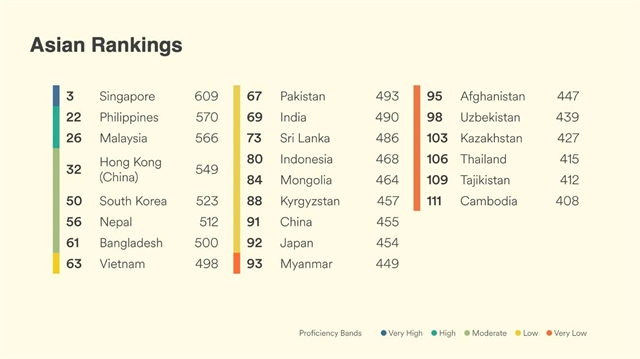 Features
Features
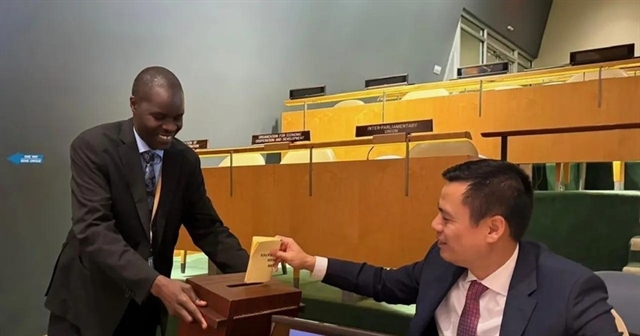
" />The Centre for Mental Illness and National Devotees in northern Hải Dương province has applied a new therapy to treat patients - teaching them skills like making brooms and mats.
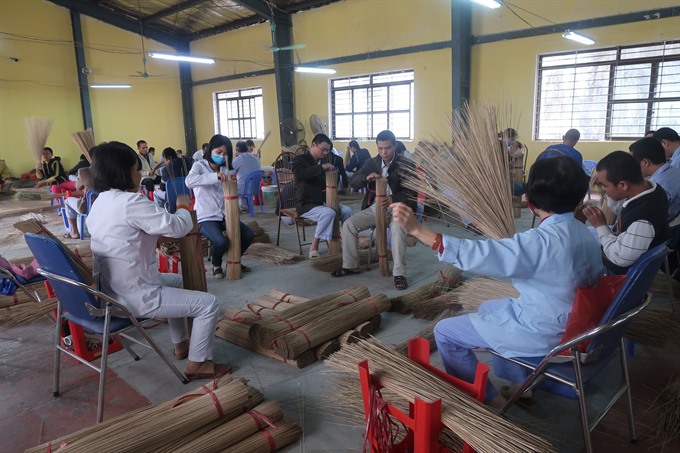 |
| New skills: Mentally-ill patients are taught to make brooms at the Centre for Mental Illness and National Devotees in Hải Dương Province. VNA/VNS Photo Hiền Anh |
by Mạnh Minh and Lương Hương
During the day, the Centre for Mental Illness and National Devotees in the northern province of Hải Dương looks like a busy workshop.
In one of the rooms, some people are busy making brooms while in others, people are assembling electric fans, making incense sticks or weaving bamboo mats.
Seeing these people so focused on their work, few would reckon that they are mentally ill patients undergoing treatment at the centre and are learning a new trade as part of their therapy.
Từ Văn Tài, a patient from Kinh Môn District, has been admitted to the centre for three years. After using the new therapy technique, his condition has improved.
“I used to feel bored, tired and homesick during my early days at the centre,” he says.
“But the doctors took care of me, and with medicines and learning a new skill, I feel much healthier,” he adds, taking a break after weaving a mat. He says it now takes him four days instead of weeks to finish a 1.6m by 2m mat.
The therapy started with broom-making four years ago. With the assistance of staff members from the apprenticeship department, more skills have been integrated into the programme. Many patients have been quick to get hold of jobs and have been creating products on their own, showing that the job training for patients has gradually yielded good results.
The input material is provided by provincial companies, which are also in charge of introducing their products to the markets, even abroad.
The development of the apprenticeship department has offered opportunities to 60 per cent of the patients to learn a new trade, increasing their chances of reintegration into society.
Last year, the inmates at the centre produced an estimated 90 tonnes of incense sticks, over 9,000 brooms - an increase of 18 per cent compared to the same period in 2016 - in addition to 14,000 electric fans and 160 mats.
With the money earned from selling the products, the centre has been able to diversify the menu, introducing more nutritious meals for the patients. During holidays, special parties are also organised.
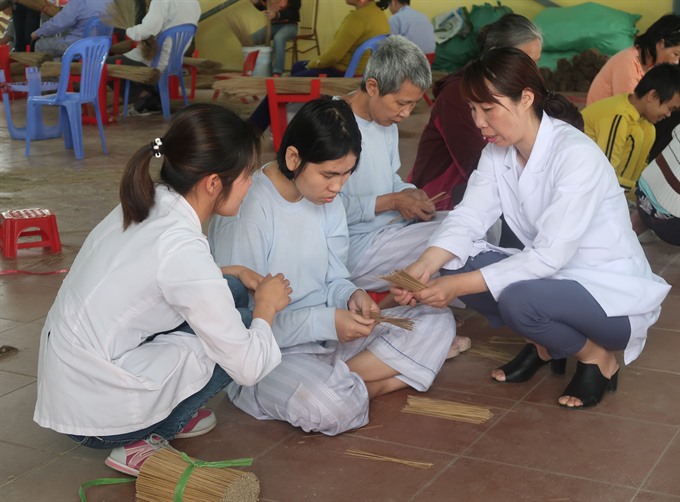 |
| Therapy: Doctors of the Centre for Mental Illness and National Devotees in Hải Dương Province instruct mentally-ill patients how to make incense sticks. VNA/VNS Photo Hiền Anh |
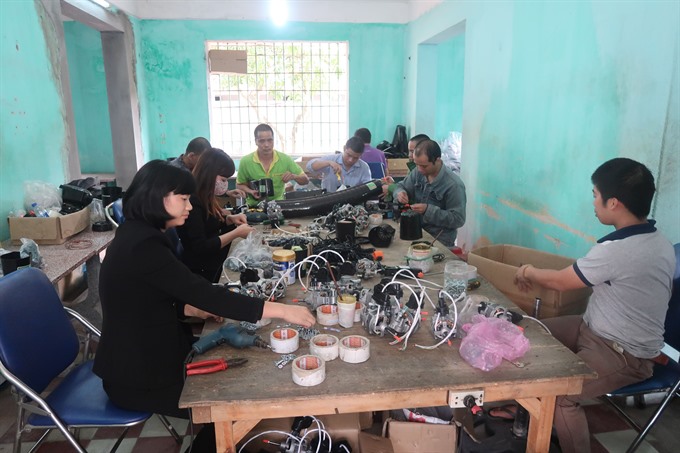 |
| Vocational training: Mentally-ill patients learn how to assemble electric fans. VNA/VNS Photo Hiền Anh |
Besides vocational training, another part of the therapy includes teaching patients to raise pigs and poultry and plant vegetables to produce fresh food for their daily meals.
Such therapeutic labour fetched the centre an abundant source of food in 2017, including an estimated 27 tonnes of vegetables, 12 tonnes of pork, 2 tonnes of poultry and 10,000 eggs. While the amount of vegetables tripled, the output of meat increased by 2 tonnes compared to 2016.
According to Vương Tiến Tạo, head of the apprenticeship department, the new method of therapy has significantly supplemented medicines, helping the patients to recover quickly and stabilise their speaking, hearing, holding and thinking capacities.
“The patients attend the workshops during the day, which helps them sleep better at night. The cases of patients making a fuss at night have also reduced significantly. Some patients who have shown improvement have been taken back home by their families,” he says.
Treating patients like family members
At present, the centre has 405 patients. All of them are treated with affection, dedication and patience by the centre’s staff.
“Each of us consider our patients our family members,” says doctor Nguyễn Thị Minh Hương, vice director at the centre.
In the morning, they coordinate with the supervisors in instructing the patients to do morning exercises, wash their own clothes and have breakfast. The nurses have to constantly check every room to monitor any cases of sleeplessness or anxiety in the patients.
“We have to study and select the most appropriate trades to teach the patients and at the same time, find enterprises that will agree to coordinate,” Tạo says.
The staff of the Apprenticeship Department have to learn the trades themselves to be able to instruct the medical workers, who then teach those to the patients.
“It’s not unusual that training the patients takes months. They need instructions at every step. Sometimes, the symptoms of their mental illness are manifested during the workshop, and they even attack nurses. In such a case, we have to intervene immediately, bring the patient back to the treatment room and administer medicines,” Tạo says.
To make the labour therapy most effective, new patients have their conditions thoroughly checked, based on which they are treated and taught appropriate skills.
Their workshop lasts for four hours twice a day, except Sunday.
“Without patience and heart, no one can take over such job,” Tạo says. VNS


